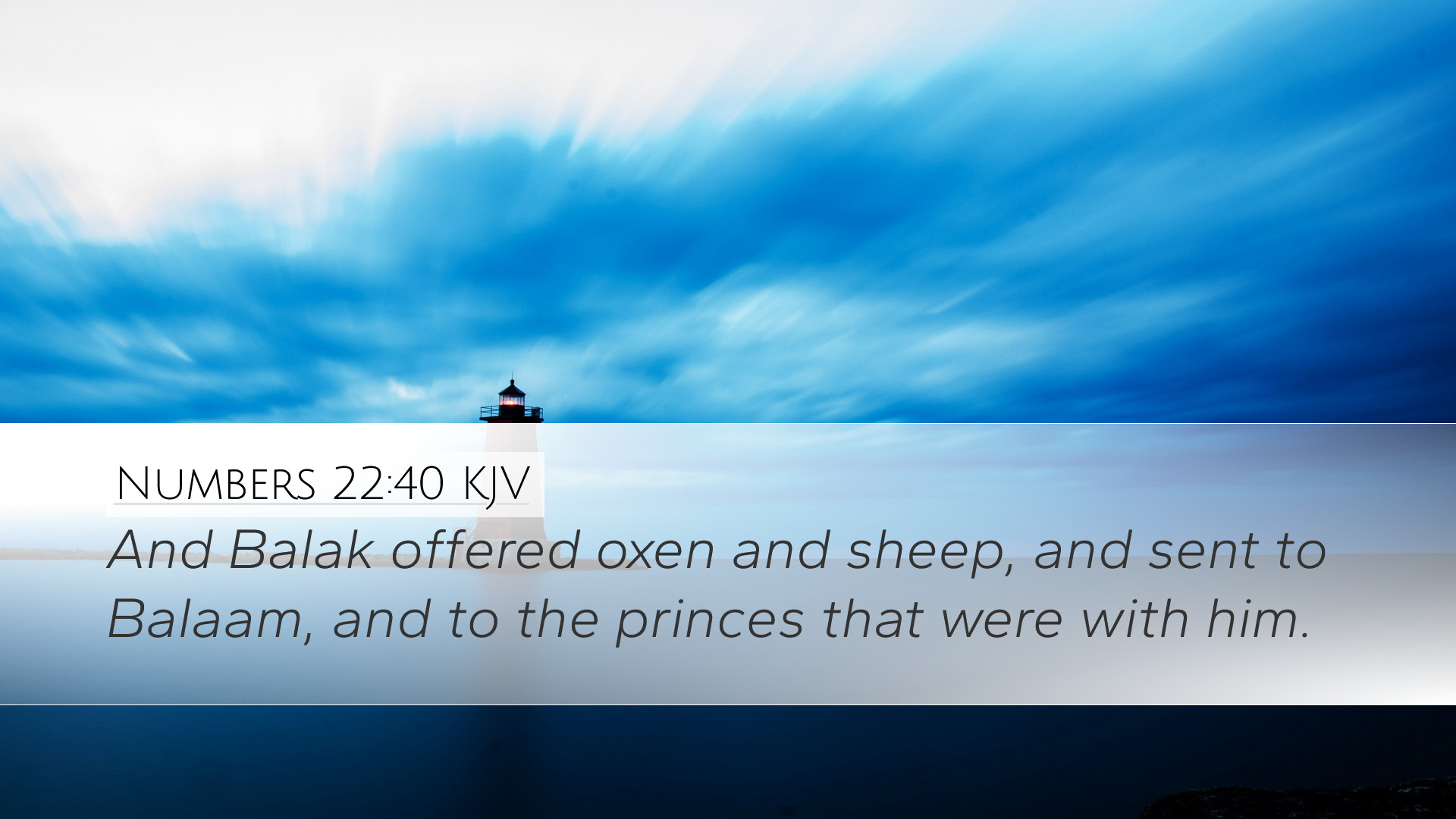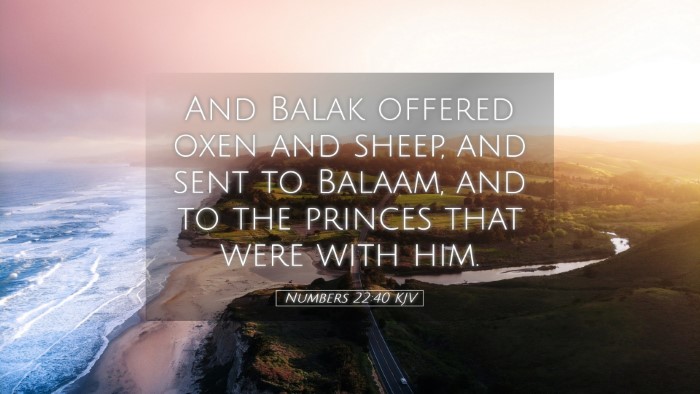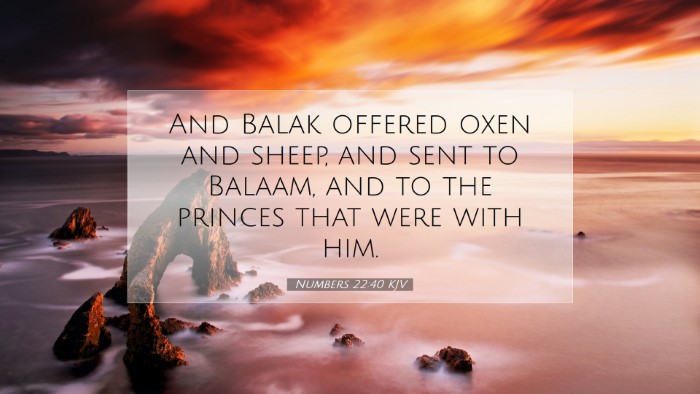Commentary on Numbers 22:40
Numbers 22:40 states, "And Balak offered oxen and sheep, and sent to Balaam, and to the princes which were with him." This verse acts as a pivotal moment in the narrative of Balaam and Balak, indicating the merging of political power, spiritual influence, and divine intervention.
Contextual Background
The account of Numbers 22 occurs as the Israelites, under Moses' leadership, are journeying to the Promised Land. They found themselves encamped on the plains of Moab, which raised concerns for Balak, the king of Moab. He sought to counteract the perceived threat posed by the Israelites by enlisting the help of Balaam, a recognized prophet noted for his prophetic abilities.
The Role of Balak
Balak’s actions in this verse underscore his desperation and the lengths he is willing to go to secure favor or a curse against the Israelites. As Matthew Henry comments, for Balak, "the stakes are immensely high." The offering of sacrifices was intended not only to enchant Balaam but also to invoke the deity's assistance against Israel.
- Spiritual Warfare: Balak's attempts show the essence of spiritual warfare—the principle that the unseen spiritual realm is engaged in human affairs.
- Use of Placation: The offerings represent a common practice concerning pagan worship, demonstrating Balak's pagan roots and reliance on ritualistic religion.
The Significance of the Offerings
The offerings presented by Balak serve multiple purposes. According to Albert Barnes, these oxen and sheep acted as tokens of Balaam's requested cooperation, representing the highest form of tribute. This reflects the socio-economic status of the Moabites and signified the seriousness of Balak’s intent.
- Economic Implications: The sacrifice was not merely ritualistic; it had economic implications that showcased Balak's power and desperation.
- Symbolism of Sacrifice: The oxen and sheep symbolize the blood needed for atonement, reminding us of the sacrificial system instituted later in the law.
The Characters of Balaam and Balak
Balaam's narrative is complex. He is introduced as a seer, someone with a measure of authority to influence the divine. Adam Clarke notes that while Balaam is recognized for his prophetic gift, his character is marred by greed and an eagerness to accommodate worldly powers at the cost of spiritual integrity. Balak, representing secular authority, seeks out Balaam for his spiritual insight to thwart the advancement of God’s chosen people.
Theological Reflections
This verse invites deeper theological reflection on the relationship between the spiritual and secular realms. It demonstrates how leaders like Balak might view the supernatural as a resource to be summoned rather than as a sovereign reality.
- God’s Sovereignty: Even as Balak oversees the offerings, God ultimately remains sovereign over His people, demonstrating that no amount of bribery or human intervention can alter divine will.
- Prophetic Integrity: The willingness of Balaam to be swayed by lavish offerings serves as a cautionary tale regarding the corruption of spiritual leaders under the influence of power and wealth.
Lessons for Today’s Believers
The implications of Balak's offerings resonate with modern believers. It serves as a vivid reminder of the temptation to compromise one's faith for material gain or favor within the secular realm.
- Discernment in Offerings: The text encourages the faithful to discern the motivations behind offerings—both given and received.
- Faithfulness Amidst Pressure: Balaam's story exemplifies the struggle of remaining true to God's call amidst external pressures.
Conclusion
In summation, Numbers 22:40 encapsulates a key moment in the struggle between divine purpose and human ambition. The offering of oxen and sheep by Balak to Balaam symbolizes not only the political maneuvering of kings but also the challenges faced by those called to serve God amidst influences from secular powers. It implores modern believers, theologians, and church leaders to examine their own offerings—of time, resources, and integrity—when confronted with the allure of worldly power.


